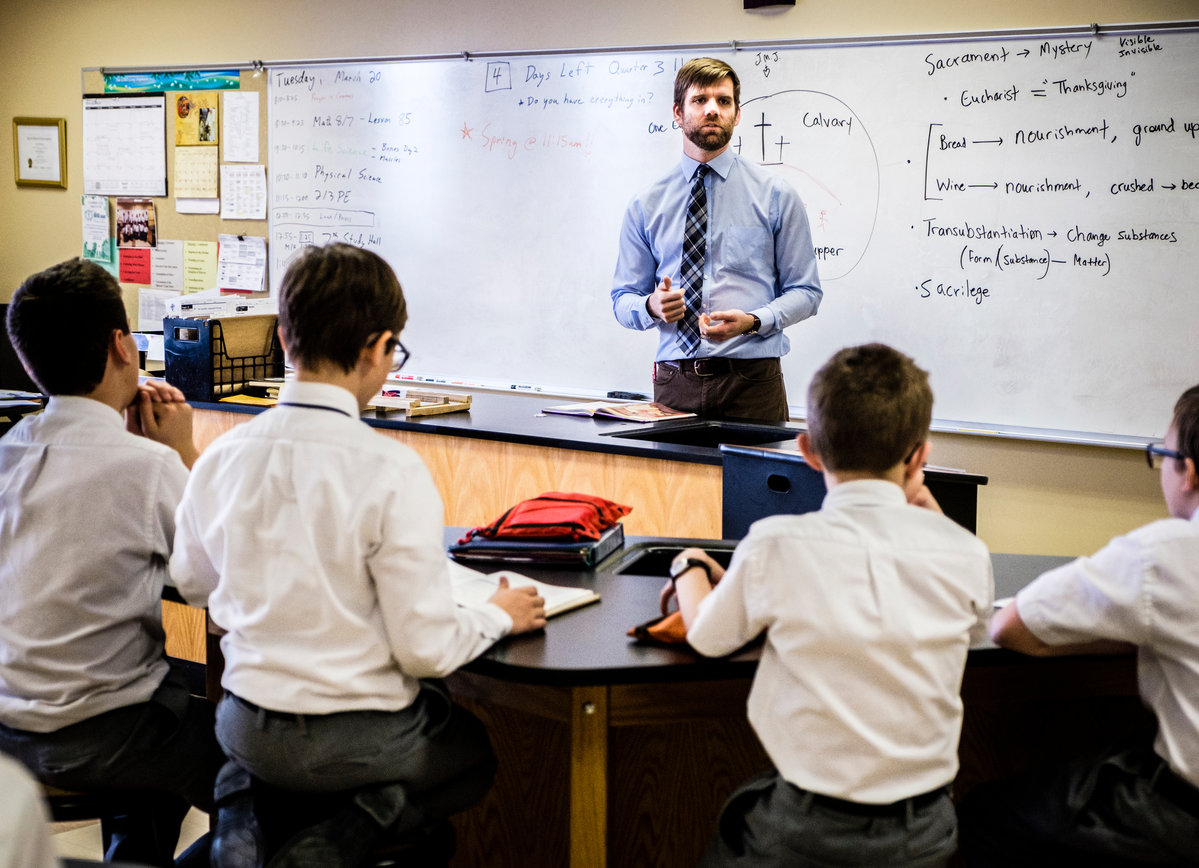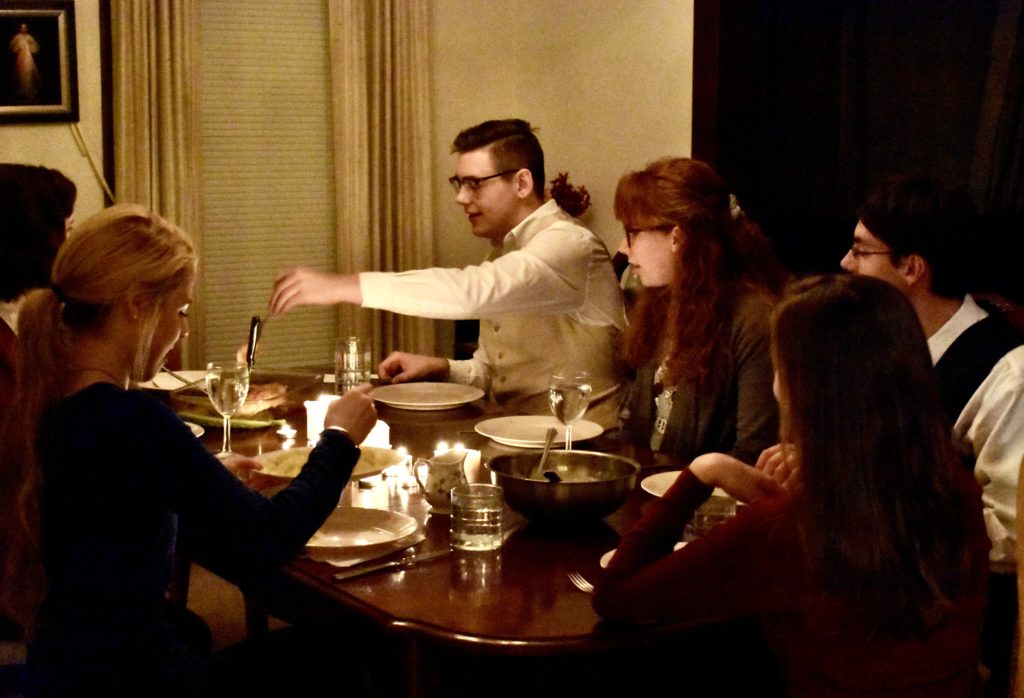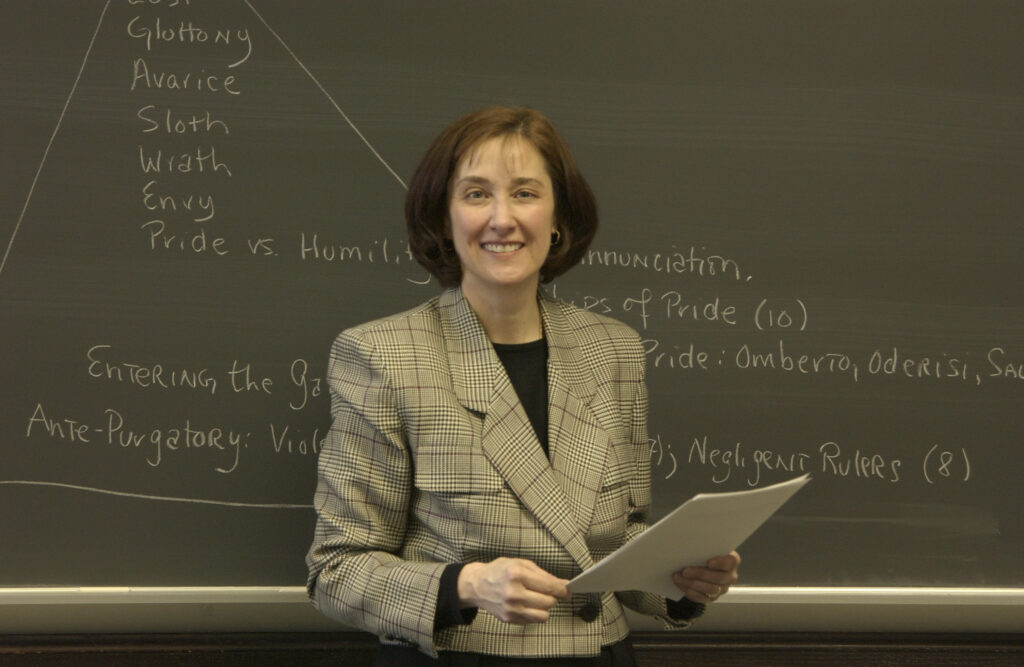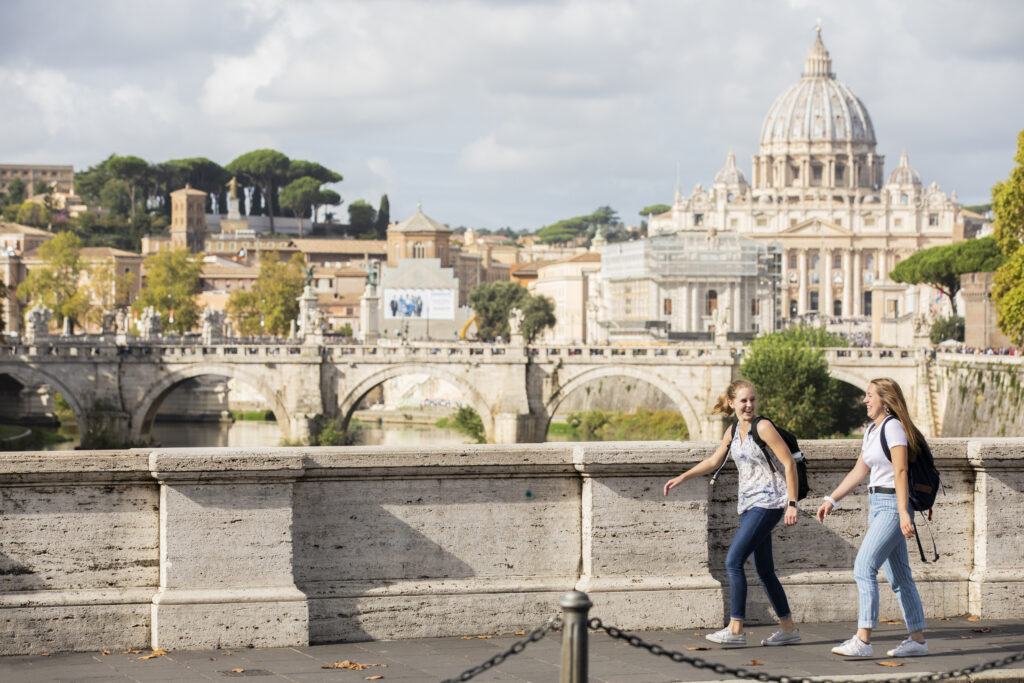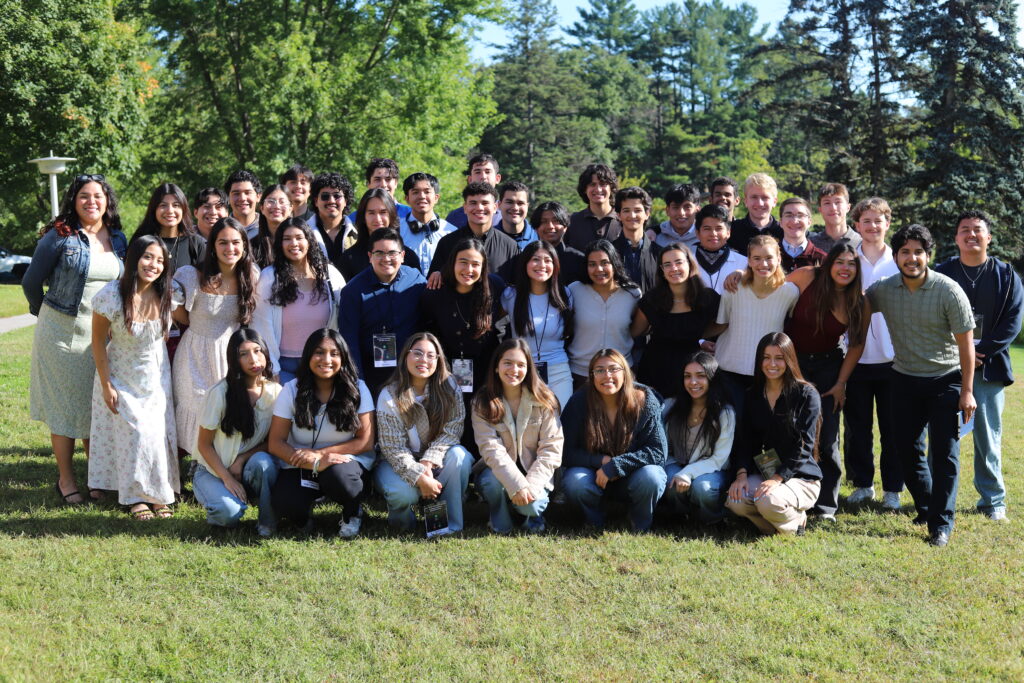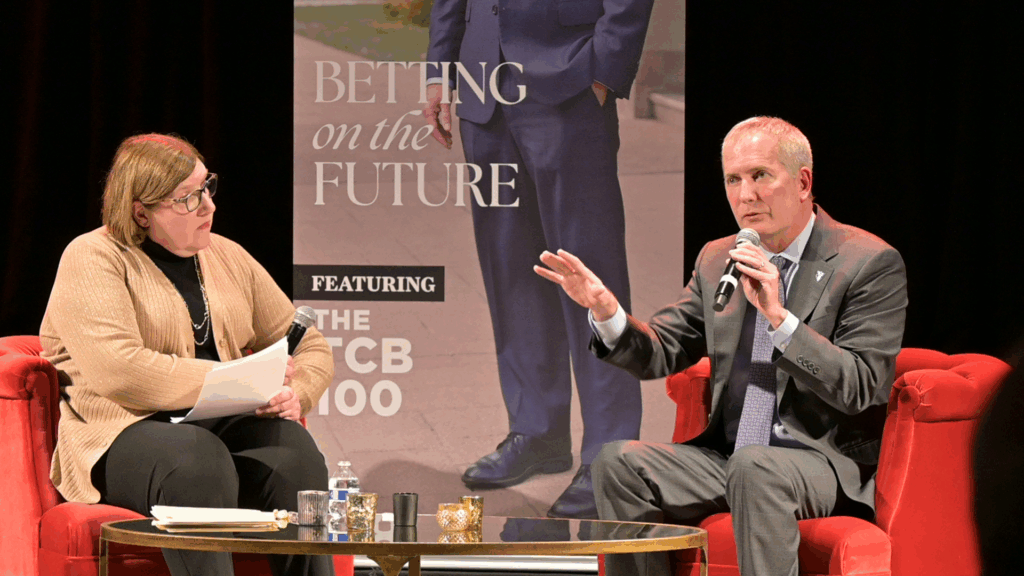Curriculum, technology, assessments, standards, etc. are important parts of any kind of education, but one of the most critical questions for today’s schools is “What makes a good teacher?” Paul VI suggests that it is one who is both a teacher and witness.
This resonates with Ben Vasko ’15, a teacher and assistant principal at Ave Maria Academy in Maple Grove, Minnesota, who holds that to be a good teacher “you actually have to know what you believe.” For Vasko, this is his Catholic faith. At the heart of his work is not an ethic or a theory but a person, the Logos, the Christ, who is all and in all (Col 3:11).
This vision is not uncommon among the Catholic Studies lay people, clergy and religious alumni who work in education and related ministries – nearly half of all current Catholic Studies undergraduate and graduate alumni.
Vasko’s principal at Ave Maria Academy, Katie Danielson ’08, leads with this Christ-centered approach. She considers the role of the school as helping children “understand their senses and passions, inform the intellect and form the will, and to keep these things directed toward Christ and the truth. I’ve really been able to articulate these things, to take them on as my own and wrestle with these ideas, through my studies.”
This goal is present not only in the classroom, but also in Danielson’s administrative style. When she needs to reprimand students, she tries to first consider their emotional and mental maturity insofar as how free a particular student is. This helps her weigh the justice of a disciplinary action a particular child may receive. Her faculty is encouraged to “go down to [a child’s] level, they see your eyes looking at them, that encounter is important because it communicates true concern for the other.” It is in these small, daily ways that she sees the recognition of the sacred go beyond the classroom to shape the mission of the school.
This vision of education is at the core of the Catholic Studies student experience, which itself is deeply informed by Blessed John Henry Cardinal Newman. Newman explained that at the heart of education is not only an accumulation of knowledge or simply career credentialing, but what he refers to as a “Unity of Knowledge.” One can learn the skills of classroom management and how to deliver content to help address these concerns, but there is more to an education, and certainly to a Catholic education.
To explain this principle of a unity of knowledge, Newman uses the metaphor of the curriculum as “a circle of knowledge in which all the disciplines depend on a certain mutual correction and completion – in which the absence of any discipline weakens all disciplines.” Education should enlarge the mind’s capacity to connect different subjects in search of a more holistic view of the world.
For Newman, the teacher’s work is to help students develop a habit of mind to see things in relation to each other, so as to form right judgments about the world they encounter. Teachers engage students in subjects such as literature, math, science, music, history and religion – all of which help the student to see not merely discrete isolated facts, but a deeper yet inexhaustible unity of knowledge. This unity of knowledge, which must first be desired by the teacher, helps students to put parts inside of a whole, to see the link between the particular and the universal, and to recognize the relationship between the secular and the sacred.

Catholic Studies alum Anne Morath teaches her Humane Letters class at Trinity School.
Anne Morath ’16 CSMA, who teaches at Trinity School at River Ridge in Eagan, Minnesota, looks back on her own educational experience through this lens.
“When I got to college, I was so ready to specialize and do the things for which I thought I had a natural talent. But, I didn’t really appreciate how the different disciplines interact with each other,” she said.
She credits Catholic Studies in giving her “the appreciation of interdisciplinary thought and study.” Engaging in this unity has been transformative for her own teaching. She explains that while teaching entails lots of work, at its heart, education is about receiving an order to creation, created by God whose final word is love. Morath’s desire for her teaching is to “form people who are awake, who will love the world, in all of its complexities and nuances and be able to think about it well, and love well.”
Seeing how things are related to each other, especially how the secular is related to the sacred, is not about imposing faith or the Catholic tradition into schools, Vasko said. It is about revealing what is intrinsically sacred about how subjects are taught, how they connect, and ultimately how they can teach students about God and their own humanity. Vasko approaches his teaching with the goal of “freeing the mind and the will so the person can choose truth, goodness and beauty, which all reside in the mind of God.” He thinks that this goal is what should distinguish a Catholic school at its finest. “When you say a school is Catholic, [the meaning of education] transforms,” he said. “It is still math, but it is math transformed.”
Take Vasko’s geometry class. He sees the relationship of 30-, 60- and 90-degree triangles and exclaims to his students, “These are always the same, we can figure out this line and this angle, and figure out the way the world is ordered and created. ... We live in an ordered universe because of God, and that is amazing!”
Vasko’s approach is nothing new; it draws from history. Hindu mathematician Srinivasa Ramanujan famously said that, “an equation for me has no meaning unless it expresses a thought of God.” And Einstein said: “The most incomprehensible thing about the universe is that it is comprehensible.”
“When you see the world with wonder it awakens something in the hearts of your students and yourself, it awakens you to the divine and the sacred,” Morath said. Education is more than pedagogy and good classroom management. At its core, it is about teachers who share knowledge with students that fills the longings of the human mind and heart to live well.
Vasko has come to the conclusion that “anyone who wants to [advance] the common good must master themselves. ... Self-knowledge leads to self-discipline, leads to self-denial, leads to self-gift.” It is in this self-gift – this witness – that the “good in common” begins to grow.
